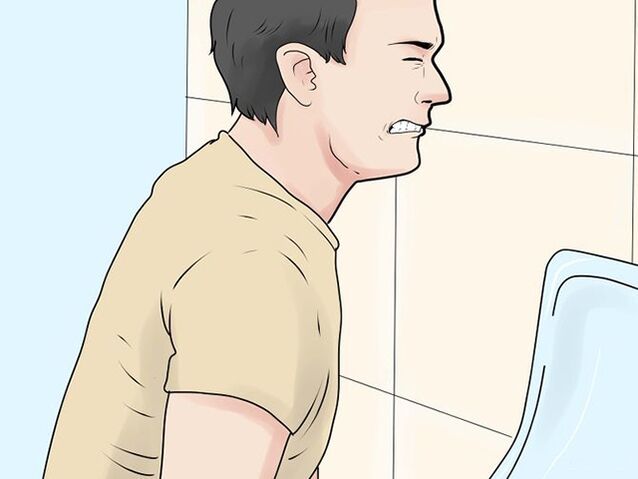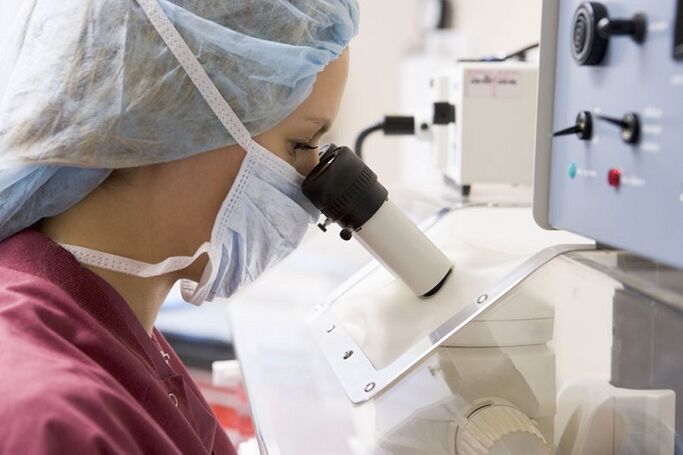Is there a cure for prostatitis? All men are alarmists, especially when it comes to men's health. With the lesions of the reproductive system, they panic and are prone to depression, which has a bad effect on the psychology.
Prostatitis is an inflammatory process of the prostate, which is responsible for the production of secretions that are part of ejaculation. Untreated prostatitis in men can lead to the disease turning into a chronic form.
Treatment of prostatitis is necessary because the disease turns into an adenoma, which then degenerates into cancer.
What are the risk factors for prostatitis in men
Until recently, doctors argued that prostatitis could only occur in men after the age of 45. However, the disease changed the patient's age, and now prostate inflammation occurs even in young children. Is there a cure for chronic prostatitis?
To answer this question, it is necessary to understand what causes disease outbreaks.
Risk factors:

- Infections transmitted through sexual intercourse. When a man lives a promiscuous life and doesn't use birth control during casual sex, they can be exposed to viruses, bacteria, and harmful microbes. After the infection has penetrated into the pelvic organs, an inflammatory process occurs. Infection is not the worst thing compared to HIV, trichomoniasis, gonorrhea.
- irregular sex life. Long-term abstinence or too frequent sexual contact can trigger a secret stagnation in the prostate. This phenomenon adversely affects the genitourinary system. Intermittent sexual intercourse is also very harmful to men's health. Frequent arousal of insufficient ejaculation can trigger flare-ups of prostatitis.
- Genetic susceptibility. If one of the closest relatives in the family has prostatitis, those men are at a much higher risk of developing the disease than other representatives of the more powerful half of humanity.
- Alcoholism, nicotine addiction, drug use, poor diet. All these causes can affect the occurrence of prostatitis, as they completely affect the health of the whole organism, including the pelvic organs.
- low temperature. Men are prone to colds, especially in the cold season. Symptoms of prostate inflammation may occur due to hypothermia in the legs or body. The prostate is very disliked by hypothermia.
- A sedentary lifestyle. Prostate inflammation occurs in men who are physically inactive. This is due to impaired blood circulation to the pelvic organs. In addition, there is constipation, stagnation of prostate secretion, resulting in prostatitis flare-ups.

An important factor is the general state of the immune system. Therefore, if the patient had a virus or infectious disease the day before, his body would be weakened and unable to fight the infection that had penetrated with full force.
At the same time, men will feel some symptoms that can identify prostatitis:
- difficulty urinating;
- Traction pain in the lower abdomen and perineum;
- persistent or frequent inability to get an erection in the morning;
- diminished or complete lack of efficacy;
- There is no prolonged pain in the genitals after the seeds have erupted.
If a person has chronic prostatitis, does the disease require treatment? The first step is to eliminate the problem that causes this pathology to occur. The next task is to examine your lifestyle.
Is there a cure for prostatitis?
In some patients, depression developed on the background of unsuccessful drug treatment, after which the man did not want to continue further treatment. They accept their disease, which can worsen the condition of the prostate into a chronic course of the disease.
Nothing is impossible, you can't put off an already difficult situation - if you do everything you can, prostatitis will be treated perfectly. There are many methods and remedies, at least today.
how to treat the prostate
If not inflamed, the male glands never bother. When the body begins to undergo changes of some undesired nature, this manifests itself as certain symptoms:
- increased urine output;
- combustion;
- urinary disturbance;
- pelvic organ pain;
- of a sexual nature.
Before starting medication, you need to consult a specialist who will prescribe the required treatment after diagnosis. Sometimes you may need to consult some experts.
- Urologist. Introduction The doctor should first examine the patient.
- The physiotherapist prescribes the necessary procedures, and for each patient, the specialist has its own approach, which requires an individual approach in each case.
- surgeon. For purulent abscesses, this specialist can help.
- Psychiatrist. Men with disturbed psycho-emotional balance need to talk with a psychotherapist.
Due to the presence of additional pathological processes in the body, other specialist investigations may be required given the characteristics of the disease.
How is prostate inflammation treated?
Prostatitis can be cured after a thorough diagnosis:

- laboratory research;
- Prostate secretion analysis;
- Ultrasound;
- Uroflowmetry (measures the rate of urine).
After the necessary procedures have been carried out and the clinical situation has been clarified, the treatment plan is determined.
When assigning a full course, the scenario looks like this:
- treatment with antibiotics;
- Reflexology, ultrasound, leech therapy and many other physical therapies;
- Massage the prostate.
The treatment plan prescribed by the urologist must be supported by some modifications in your life, namely:
- adhere to a healthy lifestyle;
- proper nutrition;
- take a vitamin complex;
- Physical activity (daily exercise, jogging).
Good pace of life, very effective supportive treatment.
various prostatitis
Pathology type is determined after full diagnosis and receipt of test results. Depending on the type of disease, specialists choose acceptable treatment options. Prostatitis can be cured?
Acute form of the disease. Can acute prostatitis be treated? This pathology is treated with a mandatory course of antibiotics. The disease usually takes a severe form, and the patient must then be hospitalized for an extended treatment regimen of various methods and drugs. There are almost no cases of prostatitis that are not cured. This is because the acute form of prostatitis is easy to diagnose.
Types of infectious pathology. Therapeutic therapy aims to eliminate infectious flora. Antibacterial and anti-inflammatory drugs that improve blood circulation are recommended.
The chronic course of the disease. People with chronic conditions have much longer treatment times. This disease requires a lot of effort and a careful approach. In some cases, several sessions of treatment using different techniques are necessary. Men cured of chronic prostatitis said they had to battle the pathology for more than a year. In the process of treatment, men often turn to folk remedies, but it is worth noting that traditional medicine cannot be the main, but only auxiliary.
How folk remedies can help
You can cure chronic diseases with the additional help of traditional medicines. For this, there are many recipes for preparing decoctions, tinctures, rectal suppositories.
Bee products have good properties: honey, propolis, anti-pest, royal jelly. On the internet, you can find many options for traditional medicine treatment, remember that treatments are used in addition to the regimen prescribed by the urologist.






















